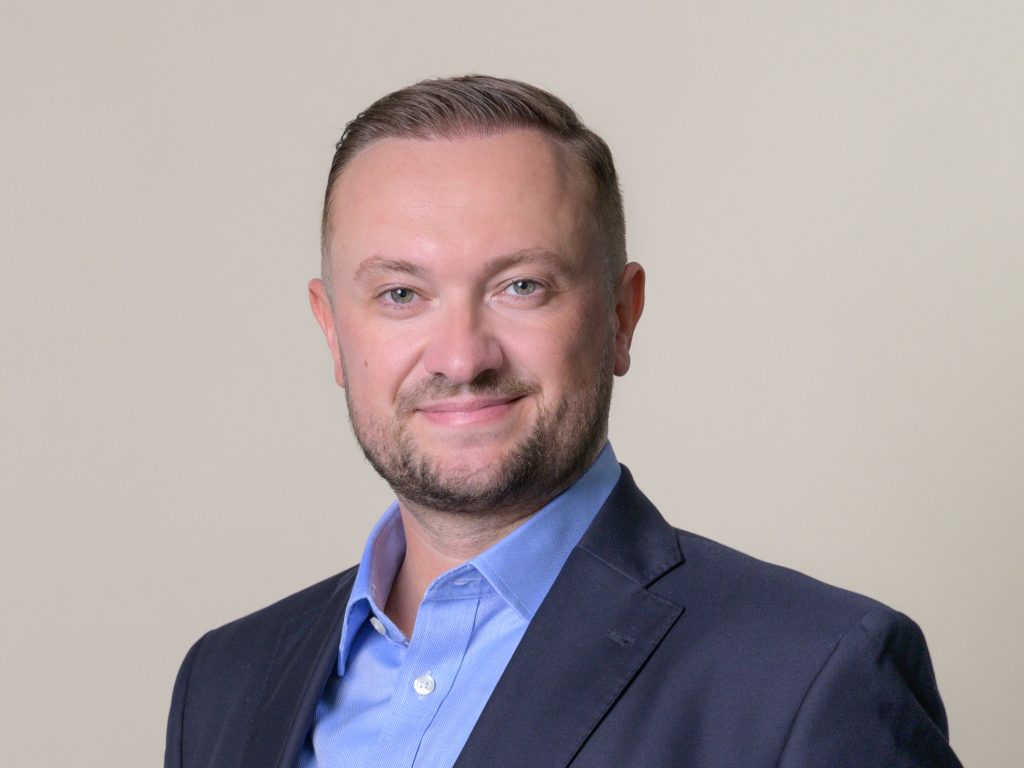“If you love what you do, you will never work another day in your life!” (Confucius). Markus Hill* spoke for FONDSBOUTIQUEN.DE with Prof. Dr. Demir Bektić, FINVIA, about “Family Office & Joy” fund selection, real assets, geopolitics, and portfolio management. Topics such as a professorship in finance, networking, and at FundForum International in Monaco will be addressed the current positioning in selected asset classes, Frankfurt am Main and “Platz am Tisch”.
Hill: What are you currently responsible for, what topics are you passionate about, and how did this interest lead to working in family offices?
Bektić: I currently hold the position of Head of Portfolio Management at FINVIA and am a member of the Investment Committee. Before joining FINVIA, I held senior roles in institutional asset management and hedge fund management. Additionally, I work as an adjunct professor of finance at the International University of Monaco and an independent expert on the committee of the Bundesverband Alternative Investment e.V. (BAI) for the annual BAI Science Award. After completing my studies in business informatics at the University of Mannheim and obtained a Ph.D. in factor-based investment strategies from the Technical University of Darmstadt. Lately, the professionalization and institutionalization of various aspects such as asset controlling, reporting, analysis quality, and advisory services have greatly contributed to the convergence of asset management and wealth management. These developments have emerged due to the increasing complexity of financial markets and the growing demand from clients for integrated solutions that address their investment needs and broader financial goals. Wealth management has always held a special appeal for several reasons. It often involves building and maintaining personal relationships with clients, which I find personally rewarding as it requires more direct interaction and client engagement. Additionally, wealth management offers a more holistic range of financial services beyond investment advice. Overall, I firmly believe that my previous experience in institutional asset management and hedge fund management is a valuable asset in the world of wealth management as well. With the ongoing convergence I mentioned, the transition will become even more seamless in the coming years. However, I must admit that the team, the start-up atmosphere, and the strong commitment to digital technologies were decisive factors that attracted me to FINVIA.

Hill: What exactly does FINVIA do?
Bektić: As a Multi-Family Office, FINVIA brings together exceptional advisory services and established Family Office offerings, leveraging the capabilities of digital technologies. Our approach is comprehensive, taking into account all aspects of our client’s wealth and providing them access to a wide range of asset classes, including alternative assets. We prioritize independence, conducting thorough analyses of our client’s needs and delivering tailored advice to optimize outcomes. In addition to the core services provided by a Family Office, we offer our wealth management solutions on the liquid side, complementing areas such as Real Estate and Private Equity. Our clients can choose from three equity solutions and one bond solution. Moreover, we facilitate the traditional selection of external asset managers and funds, and we have recently expanded our offers to include hedge fund investments. At FINVIA, we believe in an integrated approach that combines personalized attention, cutting-edge technology, and a diverse range of investment options. By prioritizing our client’s objectives and conducting meticulous assessments, we aim to achieve the best possible outcomes.
Hill: What topics are you looking at more closely at the moment?
Bektić: Currently, we are discussing several topics. To address all of them in detail would exceed the scope. Therefore, I will outline the key topics in bullet points. In terms of the liquid side, we are currently focused on gold. Stocks continue to be interesting, although we recently implemented a more defensive approach and are currently particularly focused on the healthcare and basic consumer sectors. In terms of regional focus, we prefer Europe and Japan over the United States. For bonds, we still prefer inflation-linked securities. Due to rising interest rates, combined with an inverted yield curve, time deposits have also become attractive again. We currently have limited interest in thematic products. As for overarching themes, we are closely monitoring hedge funds and factor investing in general. Particularly concerning factors (often referred to as styles or risk premia), we have high expectations. It is crucial to have comprehensive and detailed knowledge of the various factors driving the markets. Through careful analysis of these factors, we can further optimize portfolios and align them with individual goals. This leads to cost reduction, increased efficiency in the investment process, and rationalization. We are confident that identifying factors will be a crucial part of our investment strategy and will help us better manage return expectations as well as risks. I regularly discuss these and other interesting topics at various events. I would like to highlight two event formats in particular: On the one hand, “Platz am Tisch,” a nonprofit organization that promotes diversity and equal opportunities for young people is close to my heart not only because of my background. On the other hand, the Fund Forum in my second home, Monaco, provides an exclusive opportunity to meet the world’s leading investment firms in one place and engage with industry leaders. I look forward to our discussion on June 27th at our Family Office panel on the topic of “Challenges for Family Offices in 2023” and am also eager to the questions, you will be asking.
Hill: What other topics are on your agenda for 2023?
Bektić: The topics engaging us in 2023 are diverse. As a Family Office, we invest for the long term and think in terms of a decade. We generally classify secular trends into five areas: geopolitics, society, economy, technology, and capital markets. For example, in geopolitics, we focus on topics such as a multipolar world or deglobalization. In society, we consider issues like sustainability or demographic shifts. Regarding the economy, inflation and fiscal policy will continue to concern us. In the realm of technology, we pay attention to recent developments in areas like artificial intelligence. Lastly, in capital markets, we analyze alternative risk premia and underlying factors such as value or quality, the potential decoupling of the U.S. dollar, and the resulting relative weakness of the United States, as well as global commodity shortages and their impact on the markets. All five areas are interconnected and function like gears, with each affecting the others. To provide a concrete and current example: The war in Ukraine had and continues to have repercussions on financial markets. Last year, it led to increased volatility and uncertainty in the markets, particularly regarding the impact on global energy prices and geopolitical tensions. Due to political tensions and sanctions against Russia, there were capital outflows from the region and turbulence in currency markets. Additionally, the conflict disrupted European gas supplies and led to an increase in energy prices, contributing to inflation. Overall, the Ukraine conflict demonstrated how closely geopolitical events are linked to financial markets and highlighted the importance of incorporating political and economic risks into investment strategies.
Hill: What do you do when you’re not dealing with financial markets?
Bektić: Overall, finding a balance between my work and personal life is an important part of my life. One of my “hobbies” is teaching young people at universities worldwide. I find it incredibly fulfilling to share my experiences and knowledge with the next generation and support them in achieving their goals. This activity also allows me to travel extensively, engage with emerging talents, and learn from them too. Something I greatly value is spending time with my son. Apart from the financial markets, it helps me recharge and focus on what truly matters. Taking a break and enjoying nature together or playing with him provides me with an opportunity to see things from a different perspective and to organize my thoughts. Lastly, I am also a passionate motorcycle rider. Riding on the road gives me a sense of freedom that thrills me. It helps clear my mind and brings clarity to my thoughts. While riding, I can fully concentrate on my surroundings and the act of riding, allowing me to relax completely.
Hill: You work at FINVIA in Frankfurt and also live here. Speaking of relaxation, why is Frankfurt an interesting location, both professionally and privately? It is often said that the city sells itself too badly.
Bektić: Frankfurt is a great place to live. As the only German city, Frankfurt made it into the top ten of the most livable cities in the world in last year’s ranking by the British “Economist” group. Personally, Frankfurt offers tremendous diversity both professionally and in private. On one hand, Frankfurt is Germany’s most important financial center and on the other hand, is one of the most significant globally. The wide range of educational institutions and international trade fairs regularly attracts professionals from all over the world, providing a platform for the exchange of ideas, business contacts, and innovations. The city is also a crucial railway hub and intersection point for highways, ensuring excellent connectivity within Germany and internationally. As someone who was not born in Germany, I perceive Frankfurt as a cosmopolitan city with rich cultural diversity. Speaking of relaxation, the city also has a green side with numerous parks and the Main riverbank, which offer opportunities for recreation and relaxation.
Hill: Thank you very much for the interview. I look forward to the panel with you in Monaco.
Prof. Dr. Demir Bektić is the Head of Portfolio Management at FINVIA and a member of the Investment Committee. In addition, he is an adjunct professor of finance at the International University of Monaco and an independent expert on the committee of the Bundesverband Alternative Investment e.V. (BAI) for the annual BAI Science Award.
FUNDFORUM INTERNATIONAL & INFORMA
“Join 1400+ of the world’s most influential asset and wealth managers. Access a range of partnership-building and learning opportunities. Key topics include appropriate growth strategies for your business, the future of wealth management, customer alignment and digital transformation, the rise of ETFs and illiquid investment solutions, asset allocation, tokenisation, data and technology, fund selection, and much more. Leading companies confirmed to speak so far include , EdmCapital Group, Amundi, LGIM, Invesco, PIMCO, GSAM, Citi, BNY Mellon, Nikko AM, Principal Asset Management, Hamilton Lane, Allfunds, Northern Trust, Nordea, Columbia Threadneedle Investments, Ninety One, Neuberger Berman, Universal Investment, Edmond de Rothschild and many more. There is no other place where you will hear from so many top asset and wealth management firm leaders.”:
FundForum International, 27 – 28 June, Monaco
Source: www.institutional-investment.de
